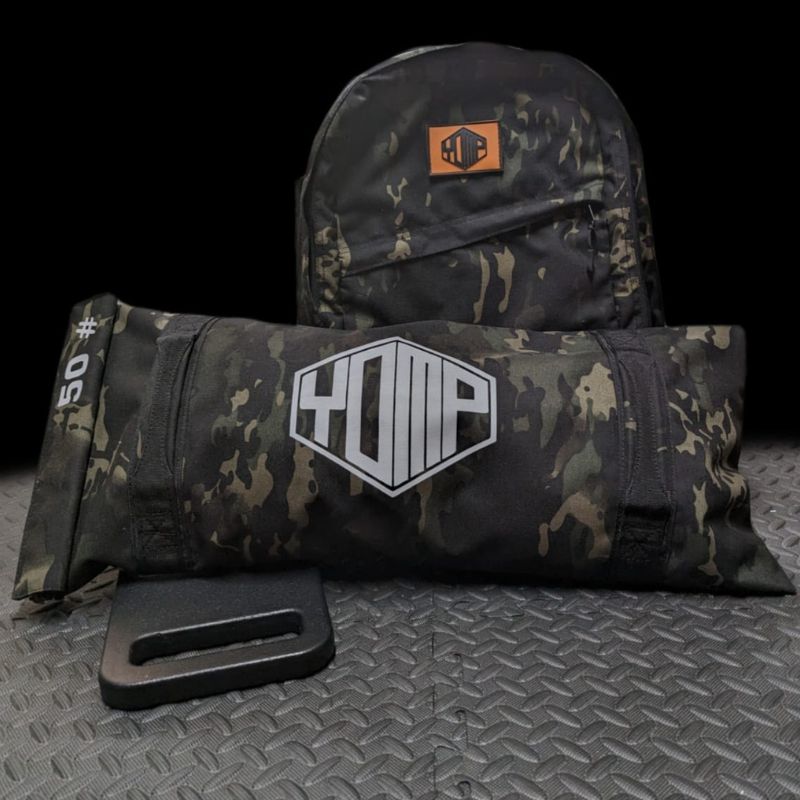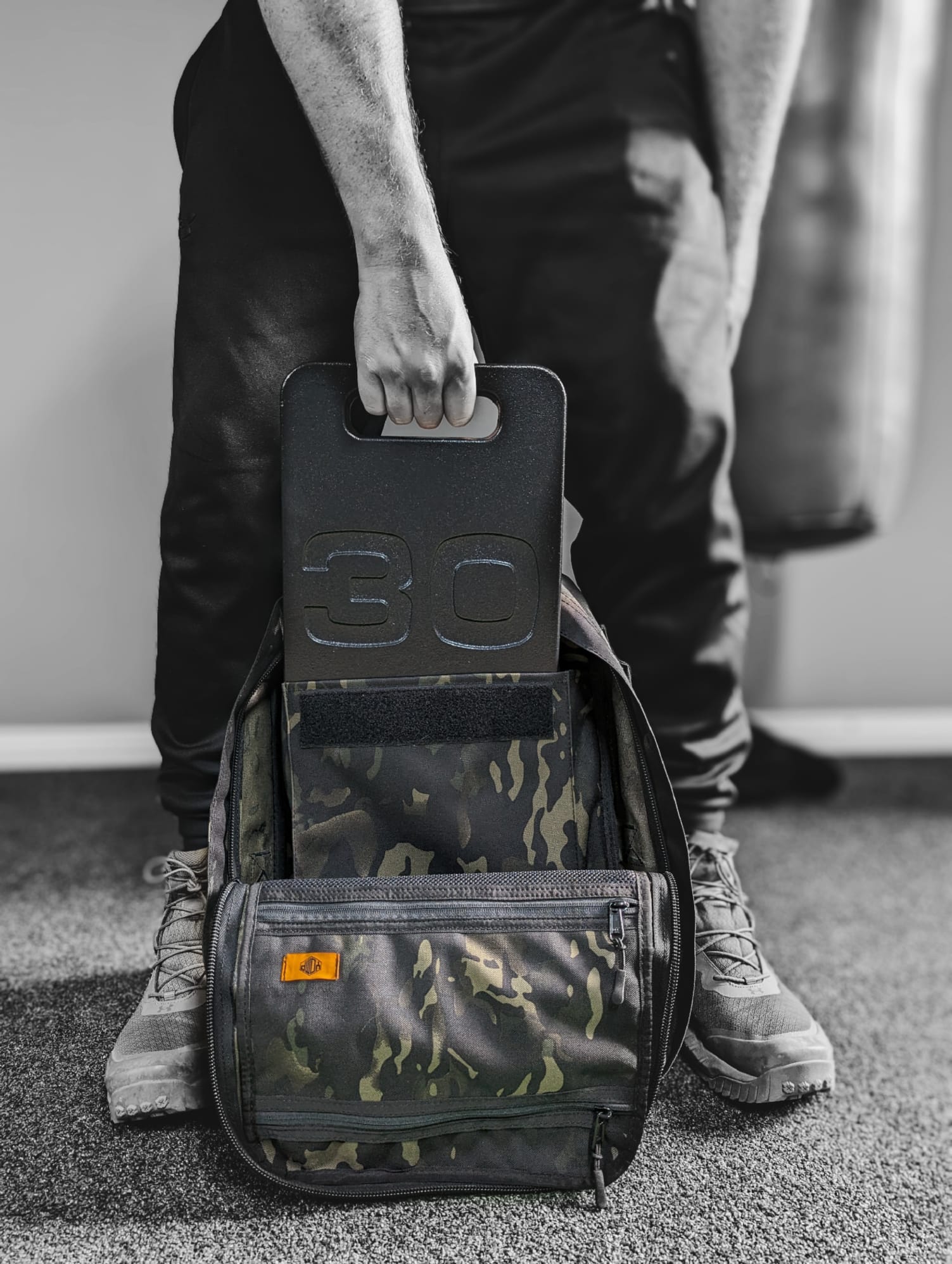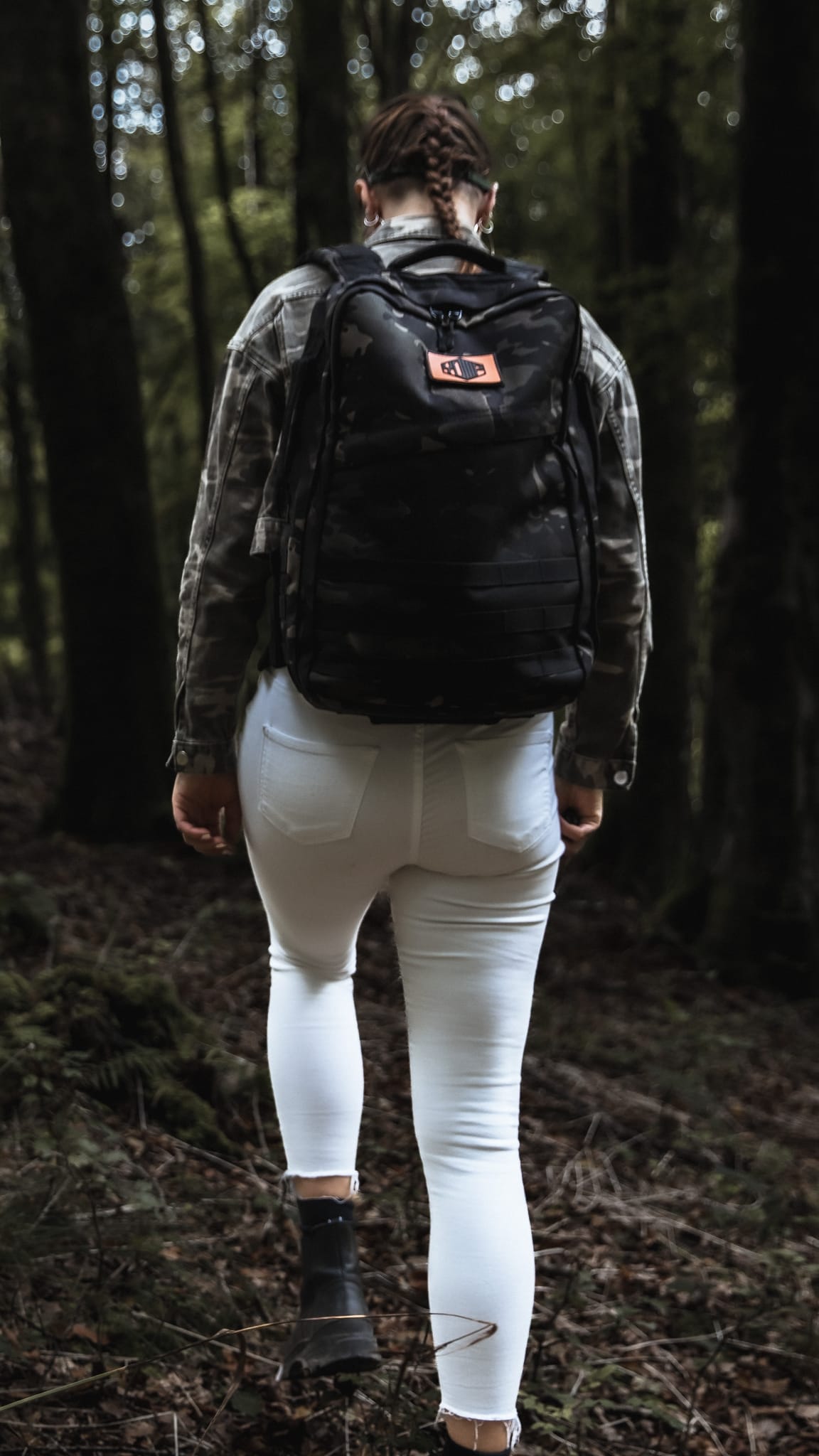The Definitive Guide to Sandbag Training for Muscle and Health

In the ever-evolving world of fitness, enthusiasts are continually seeking new ways to challenge their bodies and elevate their workouts. One unconventional but highly effective method that has been gaining traction in recent years is sandbag training. This versatile and dynamic approach to fitness involves the use of sand-filled bags as resistance tools. In this comprehensive article, we will delve deep into the world of sandbag training, exploring its benefits, offering guidance on getting started, and providing beginner, intermediate, and advanced workout programs. Additionally, we'll include a selection of popular sandbag exercises to help you build strength, stability, and overall fitness.
What is Sandbag Training
Sandbag training is a form of functional fitness that leverages the unique properties of sand-filled bags to create a versatile and challenging workout. Unlike traditional gym equipment, sandbags are unstable and require constant engagement of your stabilizing muscles to control and lift them. This instability mimics real-life movements, making it an excellent choice for functional strength development.
What are the benefits of Sandbag Training
Sandbag training offers a wide range of health benefits that extend beyond traditional strength and fitness gains. In this section, we'll delve more in-depth into these health benefits:
Improved Functional Strength
One of the primary advantages of sandbag training is its ability to enhance functional strength. Functional strength refers to the ability to perform everyday tasks with ease and efficiency. Sandbag exercises involve compound movements that engage multiple muscle groups simultaneously. This type of training mirrors real-life activities, such as lifting and carrying objects, making it highly practical for improving daily functionality.
Enhanced Stability and Balance
Sandbag exercises require you to control an unstable load, which significantly challenges your balance and stability. This type of instability training can lead to improved proprioception, which is your body's awareness of its position in space. Enhanced balance and stability not only reduce the risk of falls and injuries but also improve athletic performance.
Increased Grip Strength
The shifting sand inside the bag constantly challenges your grip strength. A strong grip is essential not only for everyday activities like opening jars but also for activities such as rock climbing or weightlifting. Sandbag training can help develop a vice-like grip, improving your overall hand strength.
Reduced Risk of Injury
Proper form is crucial in sandbag training. As you learn to control the unstable load, you also develop better body mechanics. This focus on good form can carry over to other physical activities, reducing the risk of injury by promoting safe lifting techniques and posture.
Comprehensive Muscle Engagement
Sandbag exercises target both major and stabilising muscles. This comprehensive muscle engagement not only promotes balanced muscle development but also boosts your metabolism. As you build lean muscle mass, your body becomes more efficient at burning calories even at rest, contributing to weight management and overall health.
Cardiovascular Benefits
Sandbag workouts can be designed to include high-intensity interval training (HIIT) elements. This can elevate your heart rate and provide cardiovascular benefits, such as improved endurance and increased calorie burn. Sandbag training can be an effective way to combine strength and cardio training in one session.
Mental Resilience
The mental challenge of sandbag training is not to be underestimated. As you push yourself through intense workouts, you build mental resilience, discipline, and determination. These qualities can translate into other aspects of your life, helping you overcome challenges and achieve your goals.
Versatility and Accessibility
Sandbag training is highly versatile and accessible. You can perform these workouts in various settings, from your home to outdoor spaces like parks. Sandbags come in different sizes and can be customised with sand to suit your fitness level, making it an accessible option for people of all backgrounds and abilities.
Stress Reduction
Regular physical activity, such as sandbag training, releases endorphins, which are natural mood lifters. Engaging in a challenging workout can help reduce stress, anxiety, and symptoms of depression. Additionally, the mental focus required during sandbag training can act as a form of mindfulness, promoting mental well-being.
Fun and Variety
Sandbag training offers a fun and engaging way to break the monotony of traditional workouts. The variety of exercises and the tactile nature of handling sandbags can keep your workouts interesting and enjoyable, increasing your long-term adherence to a fitness routine.
Sandbag training offers a holistic approach to health and fitness, encompassing physical, mental, and functional benefits. Whether you're seeking to improve your strength, balance, or overall well-being, incorporating sandbag exercises into your fitness routine can be a rewarding and effective choice. As with any exercise program, it's advisable to consult with a fitness professional or healthcare provider, especially if you have any underlying health concerns or conditions.

Does Sandbag Training Build Muscle?
Yes, sandbag training is an effective way to build muscle. While it may not be the same as traditional weightlifting with dumbbells or barbells, sandbag training challenges your muscles in unique ways that can lead to muscle growth, also known as hypertrophy.
Here's how sandbag training contributes to muscle development:
Resistance and Progressive Overload
Sandbags provide resistance that your muscles must overcome. When you lift and manipulate the sandbag, your muscles work against this resistance, causing micro-tears in the muscle fibres. As these fibres repair and adapt to the stress, they become larger and stronger. To continue building muscle, it's important to gradually increase the weight of the sandbag or the intensity of your exercises, a principle known as progressive overload.
Engages Stabiliser Muscles
Unlike traditional weightlifting, sandbag training requires you to stabilise the constantly shifting load. This means that not only your primary muscle groups but also your stabiliser muscles are actively engaged. The instability of the sandbag forces your body to recruit additional muscles to maintain balance and control. This comprehensive muscle engagement contributes to well-rounded muscle development.
Functional Muscle Growth
Sandbag training promotes functional muscle growth, which means your muscles become stronger in ways that apply to everyday activities. The movements involved in sandbag training, such as lifting, carrying, and twisting, mimic real-life tasks. As a result, the muscle gains you achieve are directly applicable to practical situations, enhancing your overall functional strength.
Variety of Exercises
Sandbag workouts offer a wide range of exercises that target various muscle groups. You can perform squats, lunges, presses, curls, deadlifts, and more with a sandbag. This versatility allows you to work different muscles in your body, creating a balanced physique.
High Repetition Workouts
Many sandbag workouts incorporate higher repetitions, which can lead to muscle endurance and hypertrophy. The combination of resistance and repetitions can create muscle fatigue, ultimately contributing to muscle growth.
Sandbag training is an effective method for building muscle. It offers a unique set of challenges that engage both primary and stabilizer muscles, promotes functional strength, and provides a variety of exercises to target different muscle groups. As with any muscle-building program, consistency, progressive overload, and proper nutrition are key factors in achieving your muscle-building goals.
Sandbag Exercises
Here are some fundamental sandbag exercises to include in your workout routine:
Reverse Lunge + Twist
Stand with the sandbag on one shoulder.
Step back into a reverse lunge while rotating your torso towards the side with the sandbag.
Return to the starting position and repeat on the other side.
Squat + Shoulder Press
Hold the sandbag at shoulder height.
Perform a squat, then press the sandbag overhead as you stand up.
Russian Twist
Sit on the ground with your knees bent and feet flat.
Hold the sandbag close to your chest.
Lean back slightly and twist your torso to each side, tapping the sandbag on the ground.
Bicep Curl
Hold the sandbag with both hands in front of your thighs.
Curl the sandbag towards your chest, engaging your biceps.
Deadlift + Squat
Stand with the sandbag in front of you.
Hinge at your hips and knees to lift the sandbag off the ground.
Stand up and perform a squat with the sandbag.
Glute Bridge + Pullover
Lie on your back with your knees bent and feet flat.
Hold the sandbag with both hands overhead.
Lift your hips into a glute bridge while lowering the sandbag behind your head.
Beginner Sandbag Workout
| Exercise | Repetitions | Sets | Rest Between Sets |
|---|---|---|---|
| Squat + Shoulder Press | 12 | 3 | 60 seconds |
| Reverse Lunge + Twist | 10 (each leg) | 3 | 60 seconds |
| Bicep Curl | 15 | 3 | 60 seconds |
| Russian Twist | 15 (each side) | 3 | 60 seconds |
Intermediate Sandbag Workout
| Exercise | Repetitions | Sets | Rest Between Sets |
|---|---|---|---|
| Squat + Shoulder Press | 12-15 | 4 | 45 seconds |
| Reverse Lunge + Twist | 10 (each leg) | 4 | 45 seconds |
| Bicep Curl | 15-20 | 4 | 45 seconds |
| Russian Twist | 15 (each side) | 4 | 45 seconds |
| Deadlift + Squat | 10-12 | 4 | 45 seconds |
Advanced Sandbag Workout
| Exercise | Repetitions | Sets | Rest Between Sets |
|---|---|---|---|
| Squat + Shoulder Press | 15-20 | 5 | 30 seconds |
| Reverse Lunge + Twist | 12 (each leg) | 5 | 30 seconds |
| Bicep Curl | 20-25 | 5 | 30 seconds |
| Russian Twist | 20 (each side) | 5 | 30 seconds |
| Deadlift + Squat | 12-15 | 5 | 30 seconds |
| Glute Bridge + Pullover | 15-20 | 5 | 30 seconds |
Common Questions
Are sandbag workouts suitable for beginners?
Yes, sandbag training can be adapted to various fitness levels. Start with lighter sandbags and simpler exercises if you're a beginner.
How do I choose the right sandbag weight?
Choose a sandbag weight that challenges you but allows you to maintain proper form. You can always increase the weight as you progress.
Can sandbag training help with weight loss?
Yes, sandbag workouts burn calories and build muscle, which can aid in weight loss when combined with a balanced diet.
Sandbag training is a dynamic and effective approach to fitness that offers numerous benefits, including functional strength, versatility, improved grip strength, and injury prevention. By incorporating sandbag exercises into your workout routine, you can enhance your overall fitness and athleticism. Whether you're a beginner looking to get started or an advanced athlete seeking new challenges, sandbag training has something to offer for everyone. So, grab a sandbag, embrace the instability, and unlock the power of sand for a stronger, more resilient you.






